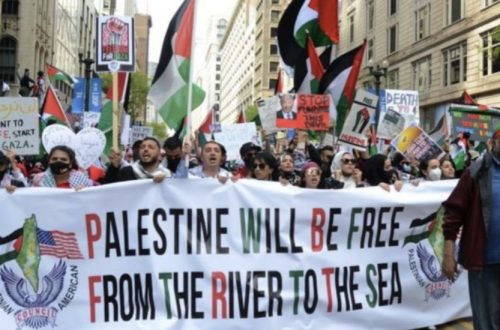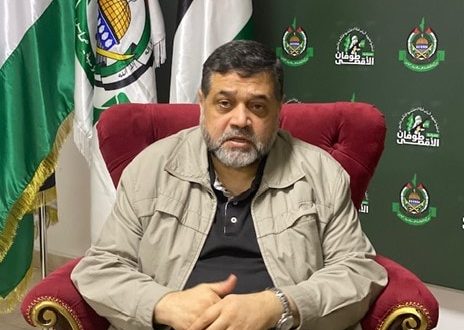Inayat says:
Dear BBC Online News Editor,
A story on BBC News Online today (25th December 2008) is entitled ‘Israel warns Hamas over rockets’.
http://news.bbc.co.uk/1/hi/world/middle_east/7799593.stm
The story contains quotes from the Israeli Foreign Minister Tzipi Livni and also refers to remarks made by the Israeli Prime Minister, Ehud Olmert. Please can you explain why there are no quotes in the BBC story from anyone in the Hamas leadership? After all, the Israelis have killed three Hamas members in recent days as your own story notes, yet no Israelis have been killed in the same time period. Indeed, throughout the conflict, far
more Palestinians have been killed by the Israelis than vice versa. Are the democratically elected Palestinian leadership [whatever you do, don’t mention the coup!] devoid of own opinions about what is happening in their own land or is it that the BBC is only interested in conveying the official Israeli line?It is hard to avoid the conclusion – and this is from observing BBC news coverage over several years – that your editorial policy seems firmly biased towards the Israelis. We realise that Zionist groups often accuse the BBC of pro-Palestinian bias but that is clearly a smokescreen to force the BBC to adopt ever more strident pro-Israeli positions.
It is deeply regrettable that the BBC – which is supposedly an independent news broadcaster – is failing so badly in its duty to report the Israeli-Palestinian conflict fairly.
This bias has been extensively documented in the book ‘Bad News from Israel’ by Professor Greg Philo and Dr Mike Berry of the Glasgow University Media Group.
Yours faithfully,
Inayat Bunglawala,
Advisor on Research and Policy,
ENGAGE
Oh yeah, the Glasgow University Media Group. A friendly profile on Wikipedia summarises their thesis well:
… that television news was biased in favour of powerful forces and actors in society and against less powerful groups such as the organised working class
The entry then goes on to quote an “apologia” for the GUMG written by Adrian Quinn, a “part time research student” at, erm, Glasgow University, where he is writing a PhD on, uh, the the GUMG. I wonder if his supervisor is part of the GUMG. Because that would be nice and cosy. Adrian says:
Since the appearance of its first book, Bad News (1976), the Glasgow University Media Group (GUMG) has made a sustained contribution to our understanding of media culture and especially to notions of objectivity and impartiality. Despite this, for the last 30 years the group has been the object of a diffuse and often gratuitous campaign of ridicule and misrepresentation. The authors of this misrepresentation first caricature the group, labelling it a band of Marxist conspiracy theorists…
You don’t say?
But Inayat is quite right. It would have been nice to have heard Haniyeh asked:
“So, if you end the tahdi’a, and keep firing missiles into Israel, what do you think is going to happen?”
However, perhaps Hamas just didn’t want to talk to the BBC. Certainly, in recent days, it has become even more difficult to find Hamas spokesmen to appear on news programmes and the like. This morning, the BBC specifically stated in their morning report that they had tried, but failed, to get some comment from Hamas. The BBC can’t be blamed for that.
But who can speak for Hamas?
Not Inayat. He’s more closely aligned with the South Asian clerican fascist party, Jamaat-e-Islami that was routed in the polls in Bangladesh earlier this week.
Perhaps the BBC could try the suave Wykhamist and Stalinist, Seauauauaumus Milne:
Like any occupied people, the Palestinians have the right to resist, whether they choose to exercise it or not. But there is no right of defence for an illegal occupation – there is an obligation to withdraw comprehensively.
However, although Milne is quite happy to defend the right of Hamas to “resist” by killing as many civilians as they can, it is much more important to find out if Hamas itself still thinks that strategy is a sensible one.
The BBC could also try Inayat’s boss, the convicted terrorist, Mohammed Ali Harrath. However, although the Tunisian Islamists are closely aligned with Hamas/Muslim Brotherhood, not the same organisation.
There is always Azzam “Kaboom” Tamimi. But there is some concern that he might regard being described as “Hamas’ de facto London representative” as “highly defamatory”.
But there is an acknowledged Hamas member to whom the BBC could turn for comment: the British Muslim Initiative’s own Mohammed Sawalha. Sawalha was identified by the BBC as a fugitive Hamas commander, and by the Muslim Brotherhood as “manager of the political committee … in Britain”.
So how about helping the BBC out, Inayat. Call your mate Mohammed Sawalha and get him to go on the record for Hamas.


